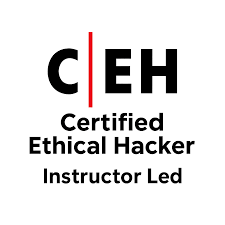Palo Alto Training – Learn Palo Alto Firewalls in 2025

Broken authentication OWASP flaws rank high among security risks in 2025, exposing systems to authentication bypass. From credential stuffing attacks to JWT tampering, attackers exploit weaknesses like session fixation exploits and password reset flaws. The OWASP Top 10 highlights issues such as MFA bypass techniques, insecure credential storage, and OAuth misconfiguration. Whether it’s brute force protection bypass or auth token hijacking, these vulnerabilities—like JWT none algorithm attacks—threaten millions. This article […]

Broken authentication OWASP flaws rank high among security risks in 2025, exposing systems to authentication bypass. From credential stuffing attacks to JWT tampering, attackers exploit weaknesses like session fixation exploits and password reset flaws. The OWASP Top 10 highlights issues such as MFA bypass techniques, insecure credential storage, and OAuth misconfiguration. Whether it’s brute force protection bypass or auth token hijacking, these vulnerabilities—like JWT none algorithm attacks—threaten millions. This article explores real-world bypass examples and fixes, tackling SAML vulnerabilities, session timeout flaws, and more to secure your apps.
Authentication bypass lets attackers slip past defenses, exploiting broken authentication OWASP issues. Weak password hash cracking or insecure direct object reference auth can lead to horizontal privilege escalation or vertical privilege escalation. A password policy bypass invites credential stuffing attacks, while session replay attacks reuse stolen sessions. For businesses, it’s a data breach nightmare; for developers, it’s a race to fix auth rate limiting bypass and remember me exploits before hackers—like those abusing biometric authentication flaws—strike.
Here’s how broken authentication OWASP flaws play out, with fixes:
Pricing Section: In 2025, certifications to master this include: CEH (2,000 € – 2,500 €), OSCP (2,100 € – 2,500 €), WAHS (500 € – 1,500 €), CISSP (800 € – 1,200 €), CompTIA Security+ (350 € – 400 €). WAHS covers password reset flaws, while OSCP dives into SAML vulnerabilities.
Patch these broken authentication OWASP risks with these steps:
For more, see Wikipedia or Gartner. The University of Rennes 1 offers relevant courses.
Broken authentication OWASP flaws like JWT tampering and session fixation exploits fuel real-world breaches. From password reset flaws to OAuth misconfiguration, attackers exploit brute force protection bypass and API key leakage. With session replay attacks and auth logging exposure in play, fixes like MFA and rate limiting are critical. Certifications like WAHS and OSCP tackle insecure direct object reference auth. Explore cybersecurity certification training at SecureValley Training Center to lock down your auth today!
Get certified with industry-leading cybersecurity certifications from EC-Council, PECB, Palo Alto Networks, and more.

Learn from world-class instructors Collaborate with top professionals Advanced training...

The CEH is the world's leading cybersecurity certification, recognized by...

Onsite training course Led by an instructor Interactive sessions

Asynchronous, self-study environment Video-streaming format Flexible learning schedule
Adding {{itemName}} to cart
Added {{itemName}} to cart

